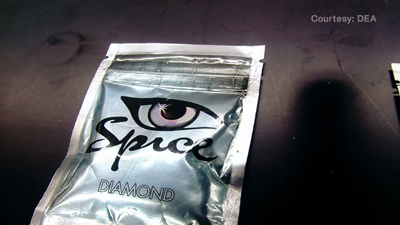The Centers for Disease Control and Prevention (CDC) is currently coordinating national surveillance activities for possible cases of vitamin K-dependent antagonist coagulopathy associated with synthetic cannabinoids use.

Image/DEA
Since the index case was identified in Illinois on March 3, 2018, state health departments have reported 202 cases, including five deaths.
Case patients have been identified in nine states with the majority being reported from Illinois (n=164). Maryland has reported 20 cases. Florida, Indiana, Kentucky, Missouri, Pennsylvania, Virginia, and Wisconsin have reported six or fewer cases per state.
More than 95 of case-patient biological samples have tested positive for brodifacoum, a long-acting vitamin K-dependent antagonist that is used as a rodenticide.
Synthetic cannabinoids are not one drug. Hundreds of different synthetic cannabinoid chemicals are manufactured and sold.
Synthetic cannabinoids are widely available. Consumers can buy synthetic cannabinoids in convenience stores, from individual drug dealers, friends, or online as incense or natural herbal products. They are sold under many different brand names, but are commonly referred to as synthetic marijuana, fake weed, legal weed, K2, and Spice.
Case-patients from this outbreak have presented with a variety of signs and symptoms of coagulopathy (e.g., bruising, nosebleeds, excessively heavy menstrual bleeding, hematemesis, hemoptysis, hematuria, flank pain, abdominal pain, and bleeding gums or mouth). In addition, some patients have been asymptomatic or presented with complaints unrelated to bleeding but have had numerical coagulopathy that may put them at risk for bleeding complications resulting from injuries and invasive or surgical procedures. Patients should be considered high-risk for coagulopathy if they have reported use of or are suspected of using synthetic cannabinoids.

